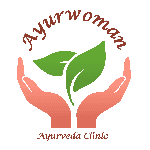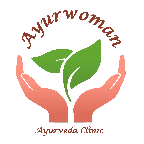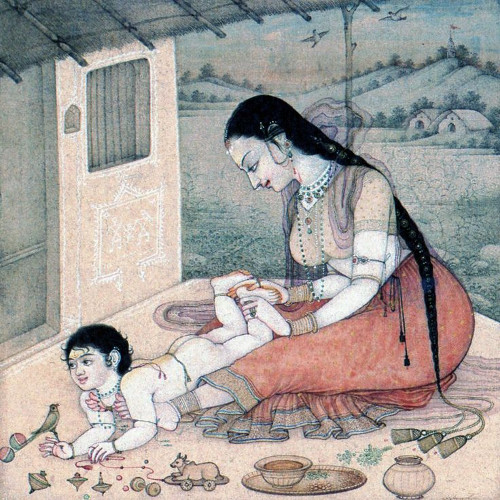Pregnancy care in Ayurveda
Pregnancy is an exciting and a crucial period in the lives of people who are expecting. The time from registering a positive pregnancy result to the child’s toddler years is very demanding on the mother. Pregnancy imposes physical and mental demands on the mother. Every parent hopes for a stress-free pregnancy, easy delivery and an angst-free childhood for their newborn.
The popularity of Ayurveda in prenatal care and postnatal care is on the rise. An increasing number of people are approaching Ayurveda to support their journey from pregnancy to motherhood. This increase in popularity is a testimony to the effectiveness of Ayurveda in pre and post-natal care.
Ayurveda has a well-developed and documented branch dealing in pregnancy care, childbirth and postnatal care termed Garbhini Paricharya गर्भिणी परिचर्या.
This branch of Ayurveda details specific care routines for each month and stage of pregnancy. Pregnancy care prescribes diet, lifestyle and thought the process to be followed during pregnancy as these have a direct effect on the mother and the child. Of these, wholesome diet is given great importance as it aids foetal growth, maternal health and lactation after childbirth.
Pre-Natal care in Ayurveda
Ayurveda prescribes that maximum care is provided to the mother and the foetus in the first three months. Some of the aspects to take care of during the initial months are morning sickness and appropriate nourishment.
Morning sickness
Many women encounter morning sickness (nausea during pregnancy) in their initial months of pregnancy. Even though the name implies nausea in the morning, women may experience nausea at any time of the day.
Following are two of the well-known Ayurvedic home remedies for morning sickness:
- Drinking water boiled using puffed rice
- Eating small quantities of puffed rice
- Drinking vetiver infused water stored in earthen pots
In situations where the morning sickness is not mild, Ayurvedic medicated jam preparations are helpful. Some practitioners prescribe classical rasayanams and choornams as well. But it is better to avoid such things in the interest of mother and unborn child. In cases of severe morning sickness, one should seek urgent and appropriate medical attention.
Care in the Initial stages of pregnancy
For healthy development of the foetus during early stages of pregnancy, milk potions and Ayurvedic supplements are administered. This helps in reducing chances of miscarriage and occurrence of anaemia. However, it is advisable to avoid liquid decoctions during pregnancy.
Self Abhyanga during pregnancy
Regular Abhyanga is an excellent wellness treatment during pregnancy. Follow the abhyanga with a bath in luke warm water. Regular abhyanga from the sixth month onwards is believed to promote easy labor. Practice self Abhyanga with a medicated ayurvedic oil matching your dosha type.
Lifestyle issues
It’s also important to keep emotions and anxiety under control for the mental well-being of the mother and baby. A good way to handle such situations is to practice mild yoga routines from 16th week onwards. Pick a compatible asana and practice this posture in the comfort of your home.
Postnatal Ayurvedic care
Delivery makes mother tired and so complete rest for at least a fortnight is very important. During pregnancy and delivery female body passes through various stages. Hormone levels, body postures and sleeping positions changes. Mothers gain body weight during pregnancy which reduces after delivery. Thus, postnatal care is very important for reducing physical and mental stress caused by these changes.
The mother should be given extra care, proper rest and a nutritious diet. Ayurveda advises special dietary and lifestyle regimen during the first 45 days after childbirth.
Postnatal Ayurvedic diet
For the first three of four days after childbirth, mother’s diet should be light and should be easily digestible. Warm fluids, gruel and soups are well suited at this stage. They can be prepared with small amounts of cumin seed, Panchakola powder, asafoetida, ajowan and jaggery. This will help in reducing pain. These foods will also help in reducing spasm due to uterine contraction. Water boiled with coriander seed or trikatu also helps in relieving uterine pain and spasm.
Immediately after delivery, digestion and appetite also become weak. Small amounts of Panchakola powder added to warm gruel, soups or drinks will correct digestive issues, will increase absorption and will also relieve constipation in the period immediately after delivery.
Also, during delivery, Vata dosha will be aggravated and the above foods will help in pacifying the elevated Vata dosha.
Nutritional food may be started from 7th day from delivery. This can include habituated diet, meat soups, fish, cooked or steamed vegetables with ghee, milk and plenty of green leaves.
Post Delivery Self Abhyanga
Most important body treatment in postnatal care is abhyanga or oil massage. A self Abhyanga or an Abhyanga by an experienced Ayurvedic therapist is beneficial in this stage. An abhyanga should be followed by a warm shower preferably in medicated water or herbal water.
Suggested Ayurvedic oils for a post-delivery abhyanga are Dhanwantharam thailam, bala thailam or pinda thailam.
Herbal water for bathing after abhyanga can be prepared as follows:
- About 100 grams of Nalpamara powder or Bala root powder
- Boil in about two litres of water for a few minutes
- When this cools down, mix in the bath tub and bath in it
An abhyanga followed by a shower with herbal water is good for regaining health and to gain proper sleep.
Post Delivery Rejuvenation
Rejuvenation therapy after delivery should be done in phases.
First phase of initial fortnight
During this period, the following may be taken on the advice of yourAyurveda practitioner:
- Dasamoolarishtam
- Jeerakarishtam
- Asokarishtam or Lohasavam with Dhanwantharam tablet
Second phase – the next fortnight
- Dhanwantahram kashayam or kashayam tablet
- Pulinkuzhampu
Third Phase – for three or four fortnights
- Sathavari kalpam
- Dasamoola harithaki
- Soubhagyasundi or Vidaryadi lehyam should be taken according to mother’s health and body nature.
Conclusion
Our previous generations considered Postnatal care as an important regimen for regaining beauty and health especially the health of lower back. Beauty and fitness secret of our ancestors are nothing else but a proper Ayurvedic postnatal care.
Postnatal care should be done with at most care. The quality of medicines and oil is very important. Selecting medicines without consulting a practitioner and careless massages and treatment may lead to other complications.
Feel free to contact Ayurwoman to get help on Ayurvedic pregnancy care during.







